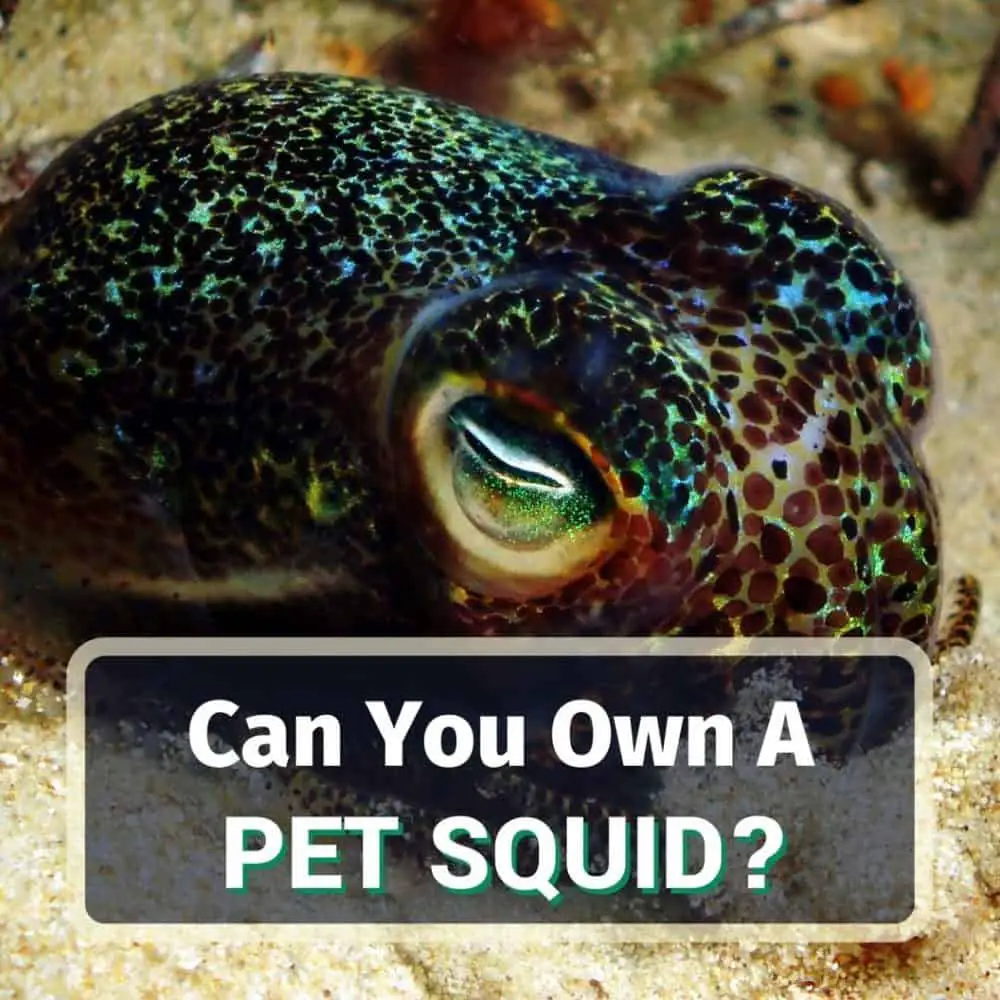Do coatimundis make good pets? No, you’d better stay away from keeping one in your house or backyard. While it could be possible, coatimundis have very demanding needs. It would be very difficult to make the animal thrive yet you would need to make sure meeting all legislative requirements.
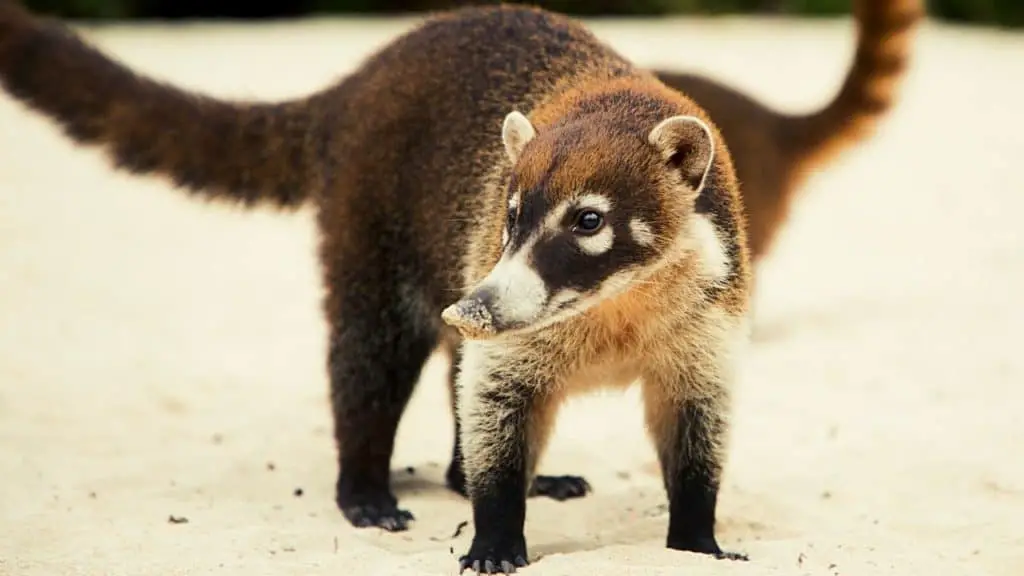
Is It Legal to Own a Coatimundi?
It depends on where you live. Wild and exotic animal laws vary by state and province in the US and Canada. Even if it is legal to own a coatimundi in your jurisdiction, you might need a special permit to do so legally.
Since coatimundis are native to some southern US states, they may fall under the native animal statutes. For example, in Texas, you can possess a captive-bred coatimundi as a pet as long as you can provide proof of legal acquisition. However, if it was wild, it falls under different rules and restrictions.
Many Canadian provinces have extensive legislation on exotic animals and restrict ownership to zoos and sanctuaries. The restrictions stem primarily from public safety concerns due to the risk of disease and injury related to these animals.
Most statutes don’t mention coatimundis by name, but that doesn’t mean you’re in the clear to own one. It’s a good idea to get a definitive answer about owning a coati in your area before purchasing one.
Coatimundi Aren’t Domesticated
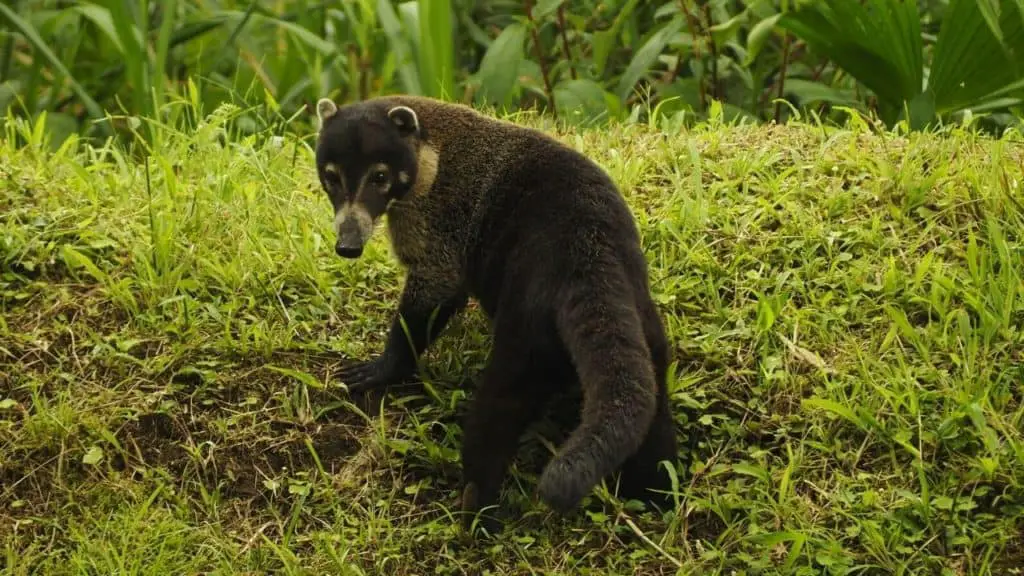
Coatimundis are cute and curious creatures, but they are still wild animals like their relatives, the raccoon, and kinkajou. Coatis like to forage for their food and roam at will, making it nearly impossible to replicate their habitat and lifestyle in a residential setting.
Are Coatimundis Dangerous?
These creatures might look adorable, but they come with a mean streak and a tendency to bite. Males become more aggressive when they reach sexual maturity, and neutering them only tempers it slightly. Spayed females might be less aggressive, but it’s not a guarantee.
Coatis have sharp claws and teeth, and they aren’t afraid to use them. You can expect to be scratched and bit regularly, even if it’s not intentional. Protective gloves might offer some protection, but these shifty critters can work around them.
Coatimundi Can Be High Maintenance
You can’t just put a coatimundi in a pen or let them have free reign in your house. Coatis need a lot of space to run around, even if you cage them. Anything less than a ten-foot by ten-foot by ten-foot cube is too small, and that’s just for an indoor setup. They also need to be outdoors and have room to play and roam.
Coatis are highly active creatures that need to climb and forage and learn. They need plenty of variety and activity to prevent stress that often turns into self-mutilation. Ropes, hammocks, swings, and baby toys are all viable options for keeping a coati engaged.
Plus, you need to pay attention to the temperature and keep it consistent. The mountain coatimundi, sometimes referred to as the South American raccoon, can survive colder weather, but that doesn’t mean they like it. Most coatis live in warmer climates and prefer milder weather.
Watch the video below to see what it would be like to own a pet coatimundi.
Feeding a Pet Coatimundi Is Challenging
Speaking of high maintenance, a coati’s diet is specific and not for those with weak constitutions. Wild coatis thrive on bugs, small rodents, lizards, and fruit. They also use their sharp claws to forage. It’s kind of like feeding an anteater with teeth and unique cravings, like eggs and fruit.
Replicating that special diet plan in captivity is not easy and might require trips to specialty shops. Some people feed their pet coatis dog food supplemented with fresh fruit, proteins, and vegetables.
However, coatimundis need to follow strict diets to prevent disease. Though it sounds like they can eat like people, several foods and substances can be toxic to coatimundis.
- Sugar-free sweeteners
- Chocolate
- Avocados
- Onions
- Garlic
- Caffeine
- Alcohol
Even if you don’t intentionally feed these items to a coati, they are curious creatures who can get into a lot of trouble, like the refrigerator or kitchen cabinets. Additionally, too many treats can make them more aggressive or turn them into picky eaters.
Coatis Are Smart and Savvy
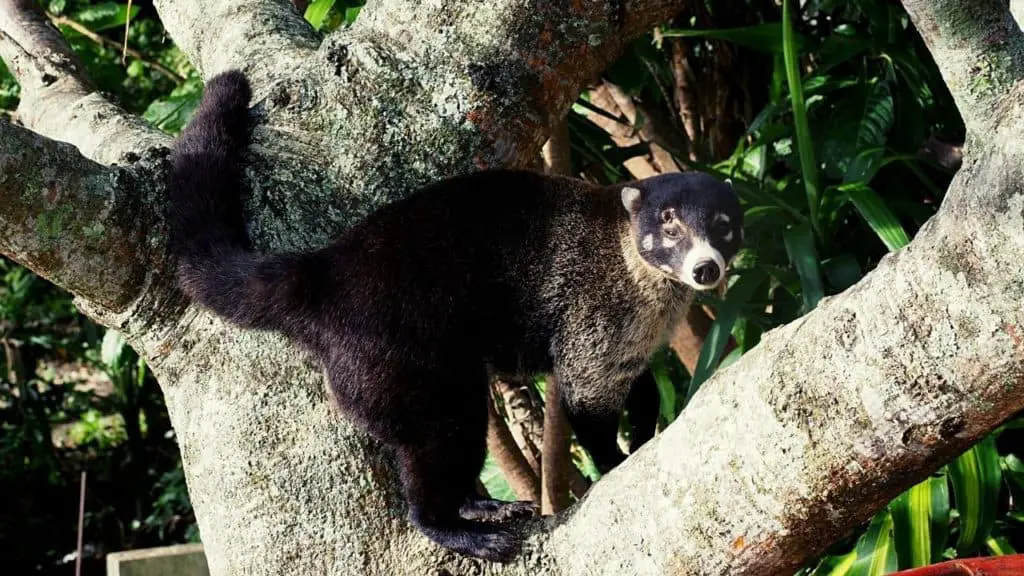
While it might sound like a perk, having a bright and energetic pet means a lot of extra work. You can teach them to walk on a leash, and even litter train them, but both require a lot of time, patience, and consistency. That said, some coatimundis won’t accept training, even with a reward system.
Since they are colorful creatures, coatis don’t do well with boredom and need plenty of activity. If they get bored, they can get depressed or stressed out and end up sick.
However, you can’t just let them run loose, or they will get into trouble. Coatimundis can be surprisingly destructive in ways that can cause a lot of damage to you, your home, and themselves.
Coatis Are Solitary Creatures
Coatimundis, especially males, are solitary creatures. Even if you raise one from a young age and around other animals, there’s no guarantee that they won’t turn aggressive. These creatures are wild and retain those urges and tendencies that help them survive no matter how lovingly you raise them.
Who Will Treat Your Coatimundi?
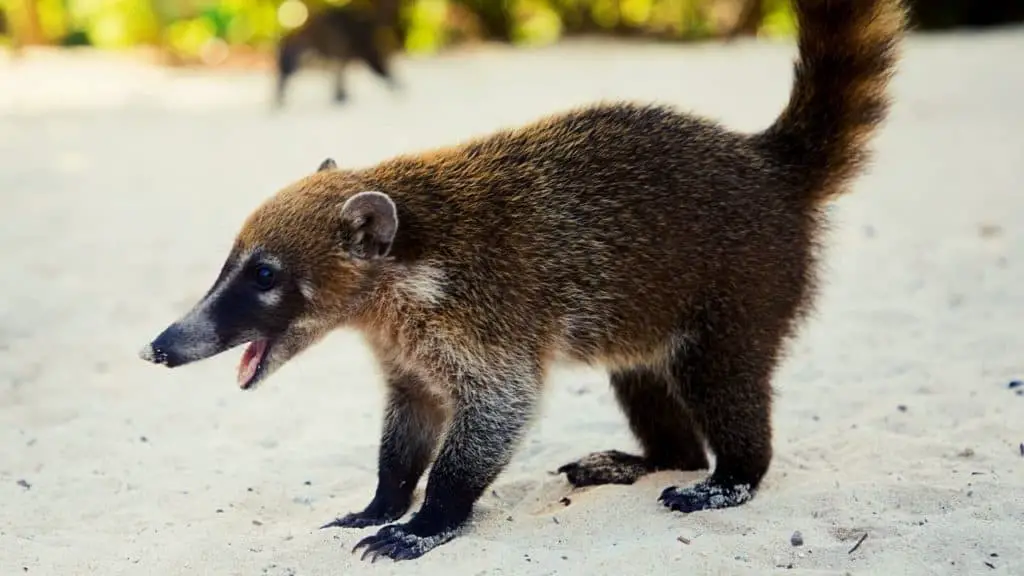
Coatimundis are wild animals that can’t be treated by all veterinarians. You need to find a vet who has the skill, knowledge, and willingness to work with wild animals. Expect to travel for appointments and pay extra for the services.
How Much Does a Coatimundi Cost?
If you still think a coati is the pet for you, at least try to find a white-nosed coati or Mexican raccoon for sale. You might see these creatures listed as kudamundi, but it’s the same animal, but this breed is less aggressive, more affectionate, and easier to care for than others.
Of course, you can’t just walk into a pet store and ask for a white-nosed coati. The only place to buy a baby coatimundi is through a breeder who specializes in exotic animals, and you can expect it to cost a lot. The average price for a baby coati is $1000, and that’s just the animal.
Expect to pay more for vet bills if you can find one. You also have to monitor their diet, buy plenty of toys, and establish a significant habitat to keep them engaged. Aside from the monetary costs, coatimundis require a lot of time and attention from you.





